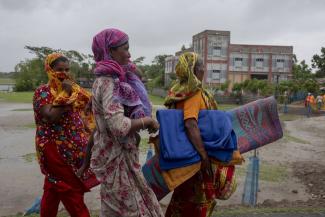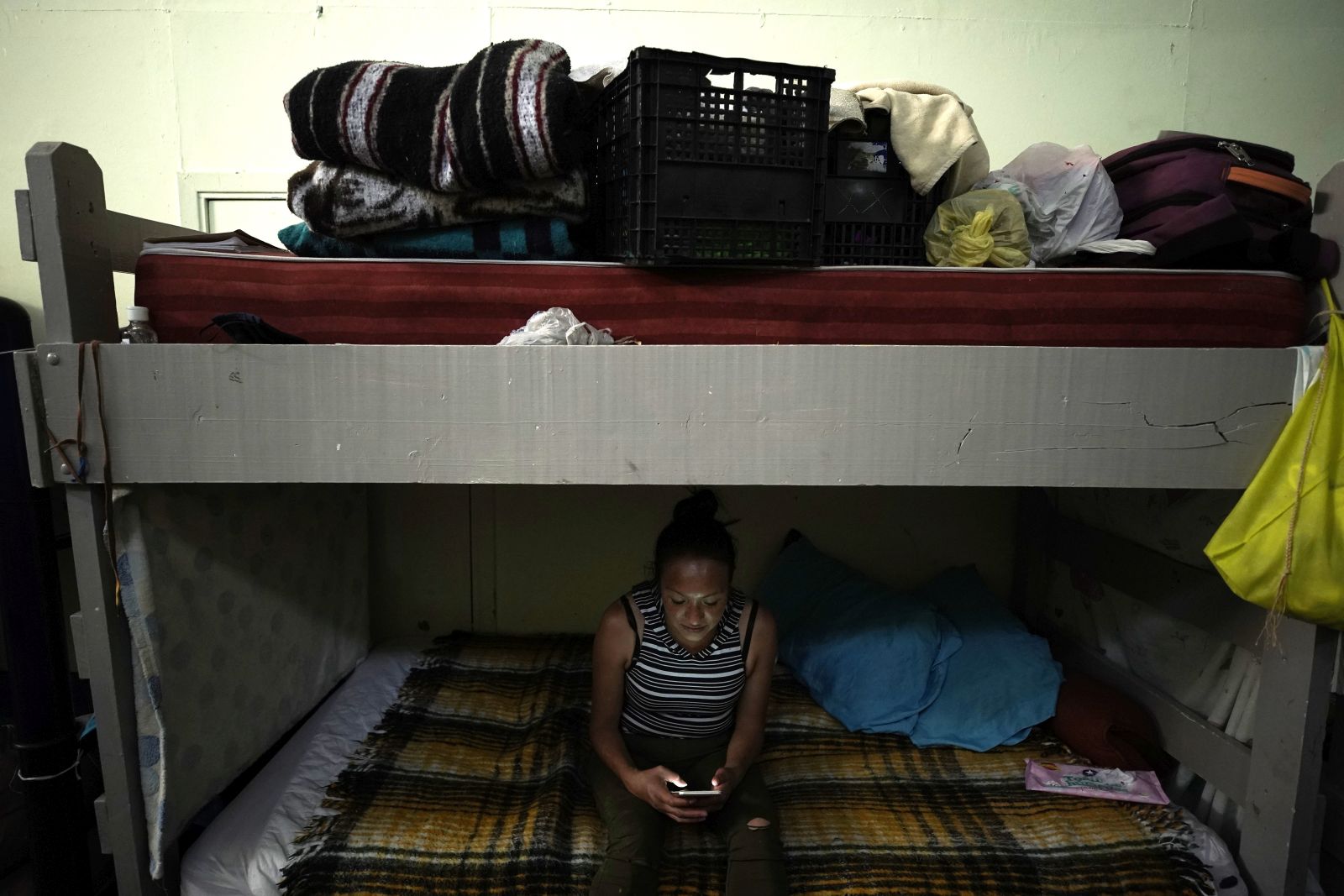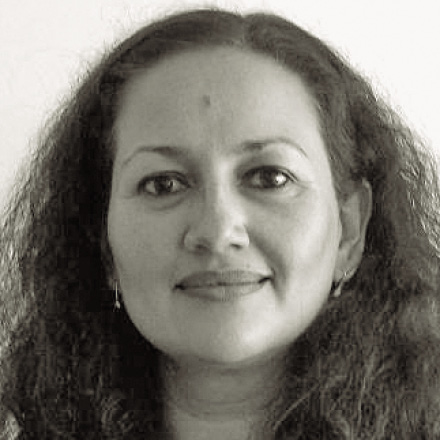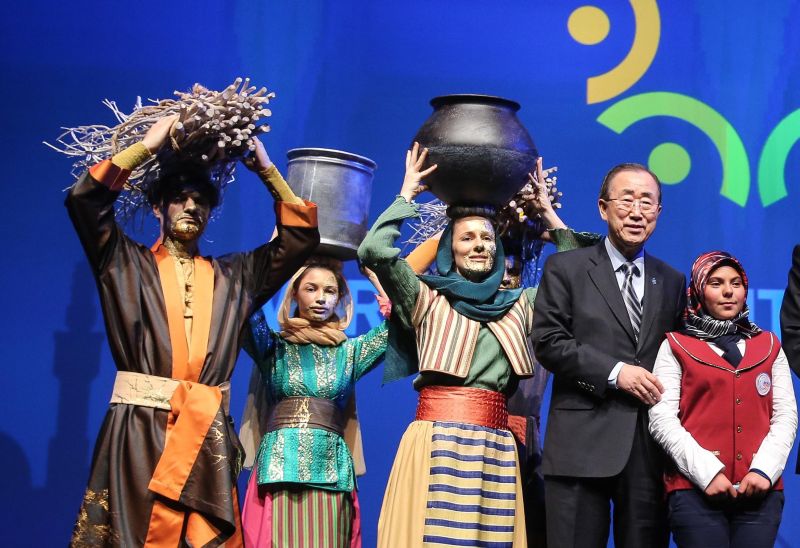Climate impacts
To prevent death and destruction, accept climate science

Bangladesh is especially exposed to climate risks. What kind of results must the climate summit in Glasgow deliver in your eyes?
Well, let me say first that Bangladesh is currently leading the Climate Vulnerable Forum of about 50 countries, so our government has a special role, representing not only our nation, but speaking for others too. While Bangladesh may be the most climate vulnerable country, we have been taken many steps to adapt to climate impacts. Our Delta landscape is prone to flooding, and cyclones regularly hit our coast. Thanks to our dramatically improved cyclone-warning system, only a few dozen Bangladeshis died when cyclone Amphan struck in 2020, while some 3 million people fled to shelters and survived. In 1991, a comparable cyclone killed over 100,000 people. We have set up a Climate Trust Fund with € 100 million of our own money, and our government spends about eight percent of its budget on climate-related efforts. Both climate mitigation and adaptation have become mainstream issues, and the general public is keenly aware of them too. Most recently, young Fridays for Future activists have been agitating against additional coal-fired power stations, and the government actually scrapped plans, though it did decide to complete projects where construction had already begun. According to the national climate strategy, Bangladesh will be one of the most climate resilient countries by 2030.
So what do you and the other member countries of the Climate Vulnerable Forum want to happen in Glasgow?
We need progress in regard to three things:
- Polluters must make and live up to more ambitious commitments to reduce carbon emissions.
- The advanced nations must finally fulfil long-standing funding pledges.
- As the harm caused by climate impacts is increasing, the international community has to tackle the controversial issue of loss and damages.
In the Paris Agreement on Climate Change, parties committed to keeping the global temperature increase below 2°C, and if possible below 1.5°C. The big polluters, some of which are major emerging markets, have talked the talk. Now they must walk the walk. It has become obvious that a 2°C increase is intolerable, moreover, so the Glasgow summit must endorse the 1.5°C goal. Global temperatures have already risen by 1°C, and we are witnessing disasters like wildfires, heat waves, droughts, floods, hurricanes, blizzards and so on. Extreme weather is becoming worse and increasingly affecting areas where it used to be very rare. Let me be very clear: not achieving the 1.5°C goal means death and destruction. Yes, it is difficult to stay within that limit, but it can be done. Humanity has the technology, the money and other resources. What we need on top of that, is the political will.
What funding do climate vulnerable countries require?
Well, the most important issue is that the advanced nations must live up to their pledges. There is a long-standing promise that they would make available an annual $ 100 billion for climate mitigation and adaptation from 2020 on. The promise was first made at the COP in Copenhagen in 2009 and formally included in the Paris Agreement in 2015. It was not fulfilled. Last year, the sums actually paid out amounted to somewhere between $ 70 billion and $ 80 billion. We do not have a precise number because these flows are not tracked systematically. The pledge included all sorts of transactions, moreover, from private sector investments to official development assistance and charitable action, which makes it hard to compile statistics. The failure to pay is disappointing and has undermined trust. The data we have, moreover, show that 80 % of the funding to date has gone to climate mitigation, not adaptation. That means that emerging markets with comparatively high emissions have received more money than the vulnerable countries with the greatest adaptation needs. We say that 50 % of the money must be used for adaptation. In any case, Glasgow should ensure that the promised $ 100 billion for 2021 are actually disbursed and that last year’s shortfall is fully compensated.
And on top of that, you would probably like to see compensations for losses and damages?
Yes, we would, but we are not allowed to raise that demand. In Paris in 2015, the US delegation insisted that liability and compensation must not be on the agenda. That was the price we paid for getting the item “losses and damages” included in the outcome document. Including it was very important because it had become evident that efforts to mitigate global warming and adapt to it were not protecting masses of people from climate-induced harm. The victims deserve support. Consider, once more, the example of cyclone Amphan. As I just said, Bangladesh managed to radically reduce the death toll, but the impact on livelihoods was still devastating. Not only individual homes were destroyed, entire villages were wiped out. Fields were flooded with saline water, so farming has become impossible there. Farmers lost their livestock; fisherfolk lost their boats; artisans lost their workshops. Masses of people therefore moved to urban areas, and very many of these climate refugees still cannot return home.
In strictly legal terms, it would make sense to make polluters pay for the damages they cause.
Yes, indeed, and court cases, in which victims demand compensation for climate-induced damages, are going on in the USA itself. Losses and damages are increasing, so they have to be dealt with. If we focus on solidarity, I think we can do so without litigating liability and compensation in legal terms. The point is to acknowledge that there are victims, and they must not be left to themselves. Quite obviously, those who have caused the problem have the responsibility to do something. If all parties are serious about rising to this challenge, solutions are possible.
China is now earth’s greatest emitter of greenhouse gases, but its regime likes to claim to be leading the developing world. How do you assess its role?
China is emerging as the leader of the world, not just the developing world. In the past four years, US President Donald Trump accelerated that trend. I doubt President Joe Biden will be able to re-establish the old balance. The cat is out of the bag, and the picture is a bit ambiguous. On the upside, for example, the People’s Republic has been scaling up renewable-energy supply domestically fast. On the downside, it has been supporting fossil-fuel projects abroad. Some recent developments, especially the oppression of Muslim Uighurs, are worrisome. At the same time, China has become a very important, if not the most important partner for many developing countries. Done well, China’s support for infrastructure in the context of its Belt and Road Initiative can do massive good. Done badly, it will cause massive harm. Overall, however, I am optimistic. In future climate negotiations, I think China will prove a force for good.
Why do you think so?
There are two reasons:
- The leadership in Beijing is pragmatic. They see that renewable energy supply is becoming increasingly affordable while fossil options are becoming more expensive. Indeed, their investments in wind, solar and storage technologies have made prices fall fast. At the same time, it is becoming ever more expensive to find and produce fossil resources. So renewables are the better business choice. China will not phase out its existing fossil-based facilities immediately, but it is fast building cleaner infrastructure.
- China itself is actually extremely vulnerable to climate change. The models show that draughts will increasingly threaten its rice and wheat harvests if temperatures keep rising. The Chinese authorities are listening to the scientific community and understand that any 2°C scenario will be very bad news.
In the past 18 months, the Covid-19 pandemic has distracted global attention from the climate crisis. Are there any lessons?
Well, I think the most important lesson is really that science matters. Governments that followed scientists’ advice largely managed to protect their people from the virus – most spectacularly so in New Zealand. Science denying governments, by contrast, literally killed their citizens, Trump being the most prominent example. For four decades, climate scientists have been telling policymakers what is happening. Nonetheless, action has been too slow to prevent foreseeable harm. It is high time for policymakers to accept evidence-based science and pay less attention to vested interests.
Saleemul Huq is the director of the International Centre for Climate Change and Development (ICCCAD) at Independent University, Bangladesh (IUB) in Dhaka.
saleemul.huq@icccad.org
http://www.icccad.net/











